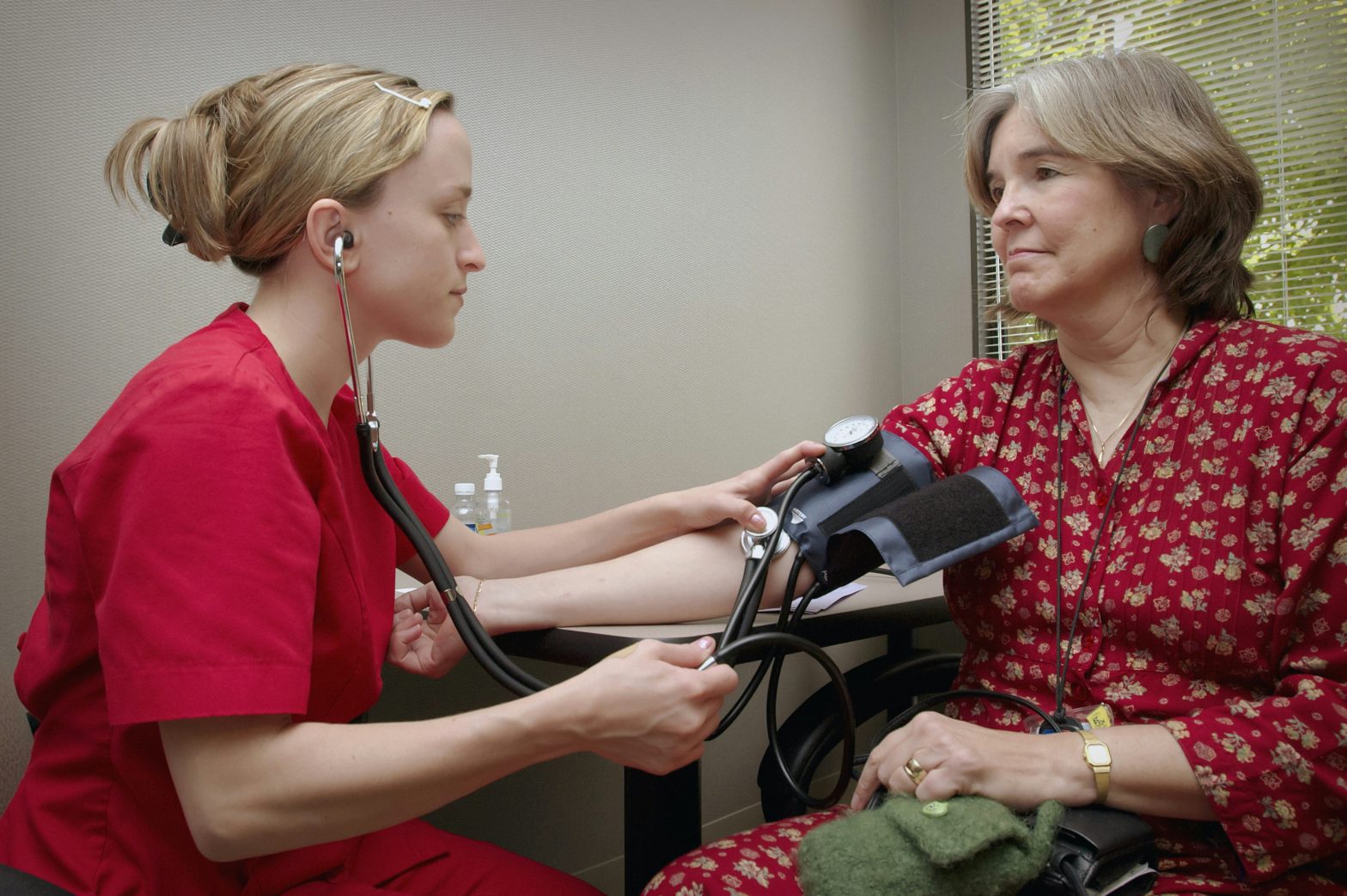We appreciate you checking out Health Talk! Please note that some links in this post are affiliate links. If you purchase through them, we may earn a small commission. There’s no obligation to buy anything, but your support is greatly appreciated! 😊
Today, we’re sharing expert insights on managing hypertension, born from years of experience in digital health and obesity care. As a trained physician, I’ve witnessed healthcare’s evolution firsthand, from traditional methods to digital innovations, and now, AI’s growing role. Let’s address the core question: “What is the best way to manage hypertension without relying solely on medication?”
Understanding Hypertension
Hypertension, or high blood pressure, isn’t limited to the elderly or those with pre-existing conditions. It affects individuals of all ages, regardless of perceived health. Blood pressure tends to increase with age due to factors like sedentary lifestyles, poor diets, weight gain, and heightened stress. These elements alter the arteries, which are vital for transporting blood and nutrients.
The Physiology Behind Hypertension
Think of arteries as smooth, elastic rubber bands that effortlessly manage blood flow. As we age, these arteries lose elasticity, similar to an aging rubber band losing its stretch. Plaque accumulates over time, reducing their efficiency. Consequently, the heart works harder to pump blood, leading to increased blood pressure.
Diagnosis and Monitoring
The American Heart Association defines hypertension as systolic pressure between 130 and 139, and diastolic pressure between 80 and 89. Blood pressure often spikes during doctor’s visits due to anxiety, known as “white coat syndrome.” Regular home monitoring is recommended, ideally in the morning before starting the day. A reliable home monitor, like the Omron Platinum Blood Pressure Monitor, ensures accurate and easy-to-use readings.
Natural Methods to Manage Hypertension
Alongside medication, numerous natural strategies can help manage and potentially lower blood pressure. Let’s delve into these methods.
1. Revamp Your Exercise Routine
Consult your doctor before starting any new exercise program, especially if you have existing health issues. High-intensity interval training (HIIT) significantly improves heart health and may lower blood pressure. Research indicates varying intensity in workouts promotes cardiovascular health. HIIT sessions can be conveniently done at home. Adjustable dumbbells like the Bowflex SelectTech 552 Adjustable Dumbbells can add resistance, enhancing both strength and cardiovascular fitness.
2. Watch Your Salt (Sodium) Intake
Reducing salt intake is often significant in managing hypertension. For many, salt-sensitive hypertension results in blood pressure spikes after salt consumption. Simple dietary changes, like using herbs instead of salt, can be significant. Consider using Herbamare Sodium-Free Seasoning, which adds flavor without the added sodium.
3. Embrace a Potassium-Rich Diet
Potassium balances sodium levels, mitigating its adverse effects. Foods rich in potassium, such as leafy greens, sweet potatoes, bananas, and salmon, are excellent choices. Increasing these foods can benefit blood pressure. Supplements like NOW Supplements Potassium Gluconate Tablets can be considered under medical advice for those who struggle to meet their needs through food.
4. Explore the DASH Diet
The Dietary Approaches to Stop Hypertension (DASH) diet is designed to help control high blood pressure. It emphasizes fruits, vegetables, whole grains, and lean protein, while reducing sodium, fats, and sugar. The DASH diet is beneficial for blood pressure, general health, and weight management. A guide like the DASH Diet Health Plan Cookbook with meal plans and recipes provides structure and inspiration.
5. Weight Loss and Maintenance
Weight significantly impacts blood pressure management. Even modest weight loss can affect blood pressure levels. The DASH diet and increased physical activity can promote weight loss, contributing to improved heart health. Tools like the Fitbit Charge 5 can track activity and motivate lifestyle changes by monitoring heart rate and steps.
6. Mindful Stress Management
Chronic stress may contribute to hypertension by elevating hormone levels, constricting blood vessels. Effective stress management is essential, including:
– Mindfulness and Meditation: Daily meditation can calm the mind. Apps or tools like the Muse 2: The Brain Sensing Headband provide guided sessions and feedback.
– Yoga and Deep Breathing: Yoga relaxes the body and mind, helping reduce blood pressure. Use props like the Gaiam Yoga Mat for effective at-home practice.
– Time Management and Hobbies: Dedicating time to enjoyable activities alleviates stress.
7. Limit Alcohol and Caffeine
Excessive drinking can raise blood pressure. Limiting alcohol intake aligns with managing healthy blood pressure levels. Caffeine can cause temporary spikes, so monitoring intake is advisable. Opt for alternatives like Teeccino Herbal Coffee Alternative.
8. Improve Sleep Quality
Quality sleep is vital, impacting blood pressure regulation. Poor sleep elevates stress and increases appetite. Establish a regular sleep routine and create a restful environment. Products like the Manta Sleep Mask can help block out light.
9. Stay Hydrated
Proper hydration is crucial. Dehydration concentrates blood, increasing blood pressure. Drink enough water daily. Use a hydration tracker like the HidrateSpark 3 Smart Water Bottle.
10. Monitor Your Progress
Tracking blood pressure at home provides insights into the impact of lifestyle changes. Home monitors are available for regular self-checks. Recording results helps identify patterns. The Withings BPM Connect offers seamless app connection.
Combining Efforts for Optimal Health
A holistic approach is key. Integrating multiple lifestyle changes creates a synergistic effect, improving cardiovascular health. Focus on long-term habits, not just immediate changes.
Adopting even one measure can positively impact your health. Small, consistent changes lead to better long-term results. Each step contributes to healthier blood pressure and well-being.
Conclusion
This guide aims to help you manage hypertension naturally. Embrace wellness, nutrition, and balance for improved health outcomes. With patience and commitment, managing and reducing blood pressure levels naturally is possible, leading to a healthier future.
Have a wonderful start to your weekend, and we look forward to sharing more health insights with you soon!
Disclosure: As an Amazon Associate, Health Talk may earn from qualifying purchases, but this does not affect recommendations. We only suggest products personally vetted.
